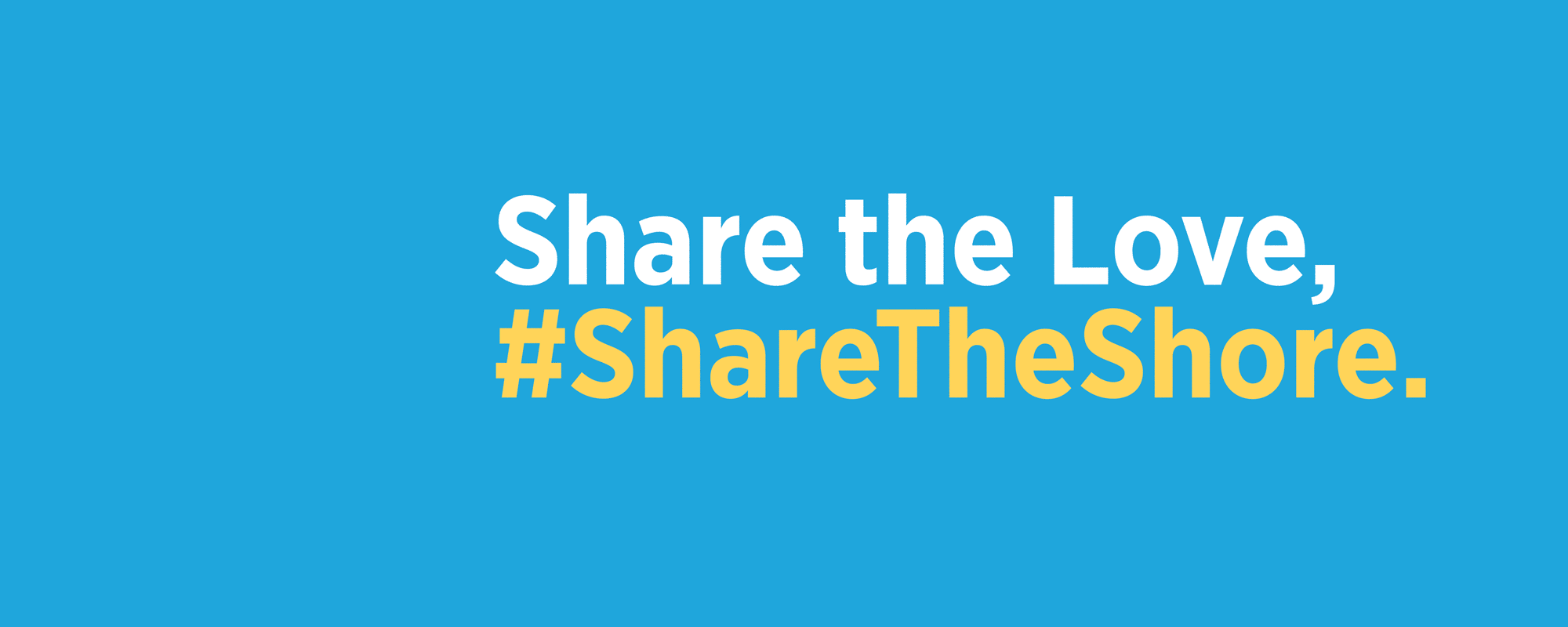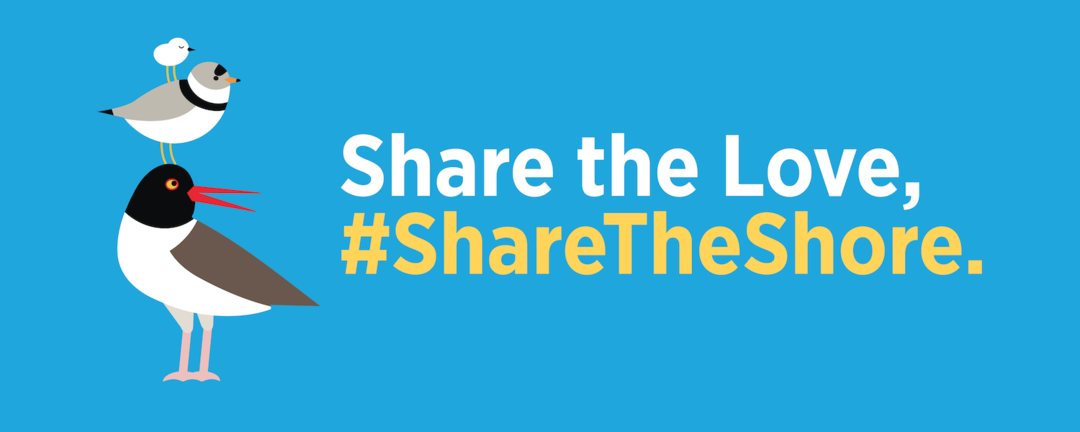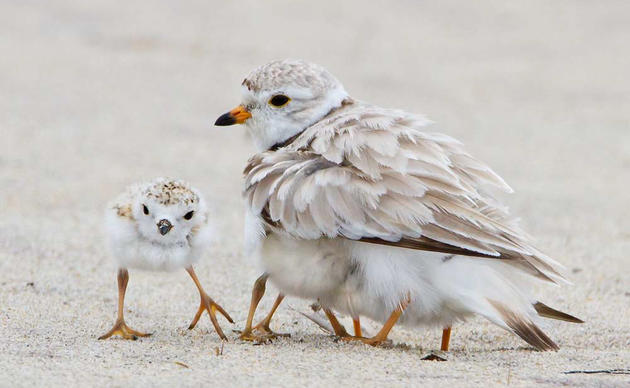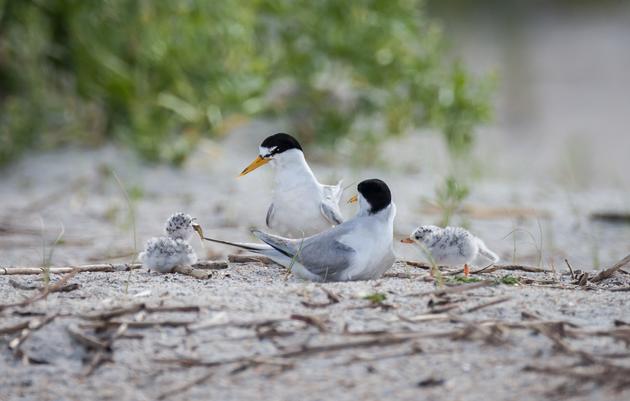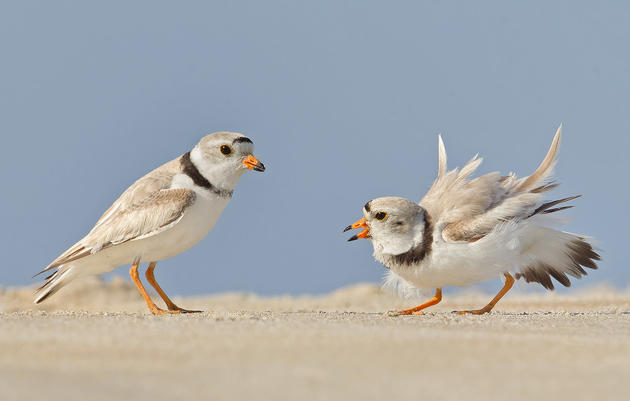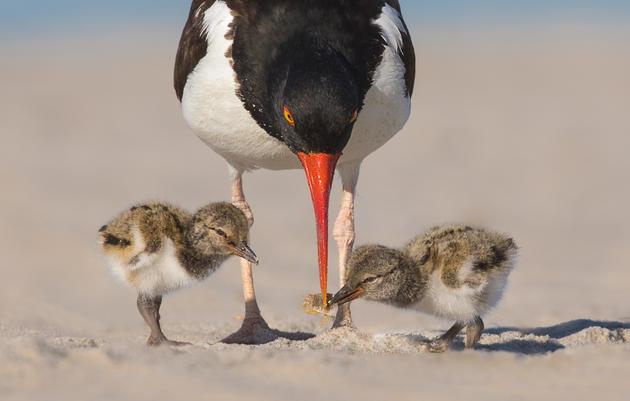It's more than just a slogan. 'Share the Love, #ShareTheShore' is Audubon's effort to protect nesting shorebirds like Piping Plovers and American Oystercatchers, and their teeny, tiny chicks.
It’s our way of uniting our voices as scientists, bird-lovers, and beachgoers who are dedicated to reducing the threats posed to vulnerable species.
"I need space!"
Vactioners, boaters, photographers, and general beach-lovers all enjoy nothing more than a sunny day on the coast. But before you grab the sunscreen and head to the beach, there are some other important things to consider.
Did you know? Beach-nesting birds need an average 100 feet of space from people and pets.
What happens if that space gets invaded? Worst case scenario: a parent is scared off the nest, exposing the eggs or chicks to potentially fatal heat or predation.
Approaching the birds or their nesting space can also cause undue stress to both the adult and chicks; this wastes precious energy that they need to forage for food.
Pets are (obviously) unable to recognize and respect this space the birds need. During this crucial nesting season (May - August), please remember: On beaches where dogs are allowed, they should always be leashed!
Pet owners and dog walkers, click for helpful info and details to "know before you go."

Images and Graphics to Share:
"Share the love" with your social media followers and encourage others to #ShareTheShore this beach season!
Click here to download a selection of shorebird photos and graphics for use.

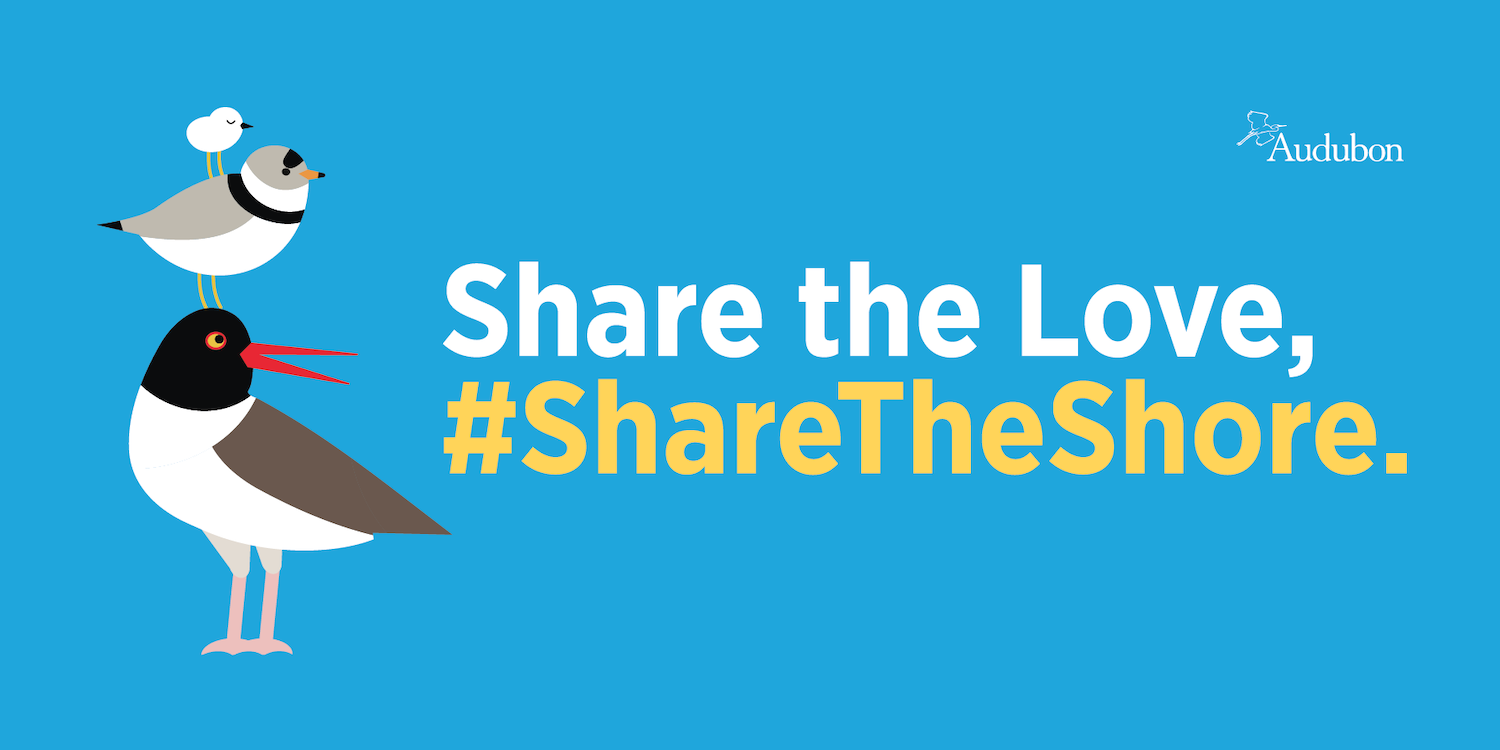
Extra Extra! Template for Writing a Leter to the Editor:
If you would like to "level up" your efforts and go beyond sharing the love on social media—send it to your local newspaper in the form of a letter to the editor!
Click here to see sample letters of varying length that you can use as a template to get started. NOTE: keep in mind, most media outlets prefer letters to be 200-300 words max. Check their website before you write!
More Ways to #ShareTheShore:
Resources to Protect Shore-Nesting Birds
Together, we can #ShareTheShore to help birds nest and raise their young successfully.
8 Ways to Help Piping Plovers
The protection of this threatened species starts with you
A Colorful Way to Help Keep Shorebirds Safe
Calling all young bird lovers in Connecticut! We need your creativity to help beach-nesting birds.
How you can help, right now
Get Involved
There are so many great ways you can get involved with Audubon Connecticut and make a difference for both the wildlife and the people who call Connecticut home.
Visit Our Centers
Connect with our nature centers in Greenwich, Sharon, and Southbury. Each unique center offers trails, educational resources, conservation opportunities, and more.
Support Us
Through land stewardship, science, education, and advocacy, Audubon Connecticut works across the state to preserve habitat and protect bird species that are of state, national, and global concern.

